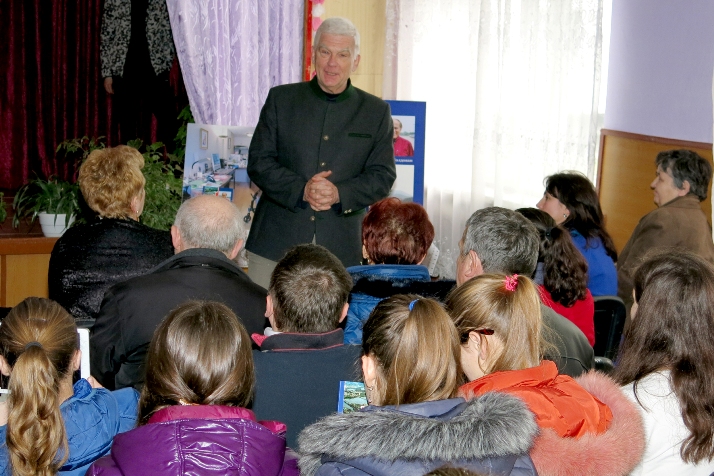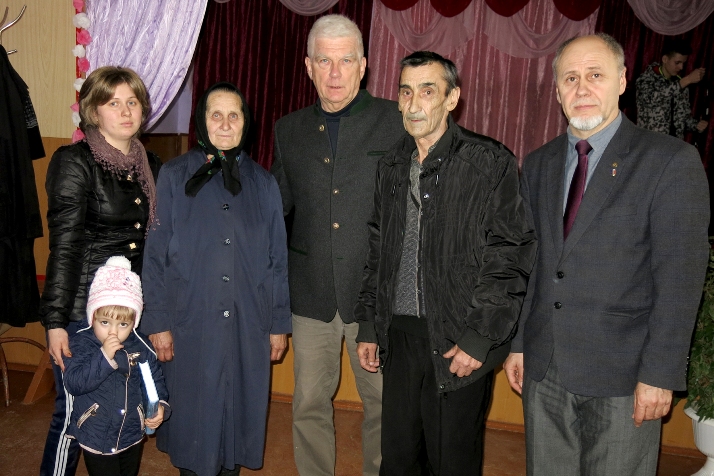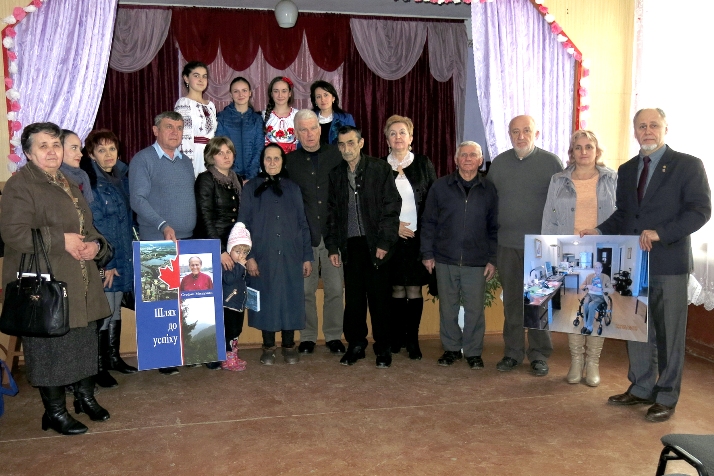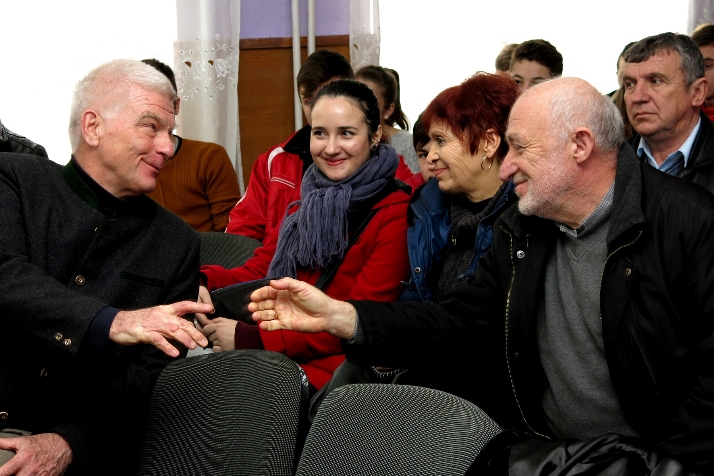A Holocaust Survivor and His Guardian Angel, Canada and Ukraine
By Professor Paul Robert Magocsi
On February 28, 2016, the small village of Kushnytsia in the very center of far western Ukraine’s Transcarpathian region was the site of a special commemorative event. Two individuals, both of whom died in the last few years, were remembered at a ceremony in the local school auditorium. One was a Jewish survivor of the Holocaust, the Canadian Stefan Moldovan, the other a village shepherd who saved him, Illya Palyok.
Decked out with Canadian flags and copies of Mr. Moldovan’s memoirs (published in Ukrainian under the title, A Road to Success, 2013), the auditorium was filled with nearly 100 young students, teachers, and a few older folk who remembered Mr. Palyok and the frightening events of World War II.

Professor Paul Robert Magocsi, chair of Ukrainian studies at the University of Toronto, board member of the Ukrainian Jewish Encounter.
Professor Paul Robert Magocsi of the University of Toronto, representing the Ukrainian Jewish Encounter, told the curious audience the story of Stefan Moldovan.
Mr. Moldovan was born in the Transcarpathian region in 1919, when it had just become part of Czechoslovakia. In the late 1920s, he and his family settled in Mukachevo/Munkatsch, the main residential site of Transcarpathian Jews and one of the most important Hasidic centers in all of central and eastern Europe. On the eve of World War II, Czechoslovakia collapsed and Transcarpathia was annexed by neighboring Hungary. Toward the end of the war, and under direct pressure by Nazi Germany, Hungary began in the spring of 1944 to deport its Jewish inhabitants to the death camps at Auschwitz. Mr. Moldovan’s parents, sister, and one of his brothers were among the victims, but Stefan and another brother, Laci, sought refuge in the Carpathian Mountains near the village of Kushnytsia.

Prof. Paul Robert Magocsi with Illya Palyok’s grandchildren. Yuriy Dmytrovych Palyok and Hanna Dmytrivna Stetsko (Palyok) and great-granddaughter Anastasia Priyma with her daughter. The publisher of the book “A Road to Success’, Valeriy Padiak (far right).
A local shepherd from the village, Illya Palyok, was sympathetic to plight of the recent high school graduates and found them a suitable shelter in the forest. For nearly half-a-year Mr. Palyok brought them food and other necessities so that they could survive. Survive they did, and after the Germans and their Hungarian allies were driven out of the region by the advancing Soviet armies in the fall of 1944, Stefan and Laci, with no family left, set off westward to the Czechoslovak capital, Prague. There Stefan completed the Faculty of Engineering and soon after decided to emigrate to Canada where he arrived in November 1952.

Event participants.
The young mechanical engineer quickly found work in Montreal, first at the industrial division of Canadian Vickers Ltd., and in 1972 at Combustion Engineering Ltd., where he rose quickly through the ranks becoming Director of Manufacturing and eventually Vice-President for Operations at the Head Office in Ottawa. Among the major activities of these companies was welding engineering, most especially for nuclear power stations and submarines. From 1988 until his retirement nearly two decades later, Mr. Moldovan headed his own firm: SM Industrial Consulting Services based in Canada’s capital city, Ottawa.

Event participants.
Despite a stellar career in Canadian industrial management, Mr. Moldovan never forgot his Jewish roots, helping family members and cultural centers in Israel. Most especially he was concerned with his “brother,” Illya Palyok in the village of Kushnytsia, who he managed to assist during the Cold War, a time of near impossible communication with individuals living in the Soviet Union. Following the collapse of Soviet rule in 1991, Mr. Moldovan was fond of recalling his better days as a youth, when before World War II his Jewish- and Rusyn-inhabited homeland had been part of Czechoslovakia. To honor the culture of the person who saved him, Mr. Moldovan became a major financial supporter of the Rusyn language after-school program, which at the outset of the 21st century was set up in several villages throughout Ukraine’s Transcarpathian region.
The February 28, 2016 tribute in the village of Kushnytsia was a beautiful means not only to honor a Holocaust survivor and the person who saved him, but also to inform young people how one should always try to act with as much human empathy as possible in times of war and disaster.
Additional resources:
http://jewish.kiev.ua/news/9224/
http://bibliotekair-crb.blogspot.com/2016/02/blog-post_40.html



















